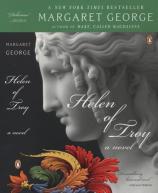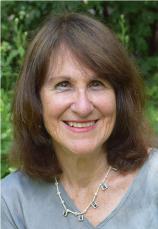Reading Group Guide
Discussion Questions
Helen of Troy

1. Helen has been the subject of numerous works of literature and art. Compare Margaret George's portrayal with others you are familiar with, such as Euripides' Helen, the recent film Troy, and the portrait by Dante Gabriel Rossetti.
2. It has often been said that true romantic love cannot last; it usually suffers the fate of infidelity, indifference, or a premature death. While Helen and Paris have their ups and downs, and eventually meet a tragic end (in life), their relationship certainly lasts longer than other classic couples', e.g., Romeo and Juliet, Antony and Cleopatra. Discuss Helen and Paris' relationship in light of these other famous couples. Do you find this a convincing portrait of romantic love?
3. Helen's divinelike beauty guarantees her a certain amount of power. Her mesmerizing looks command attention. In this novel what is the source of Helen's power? Does her power ever stem from more conventional sources like courage or wisdom?
4. Helen's origins are usually traced to Zeus' rape of Leda. Most of Helen of Troy follows this tradition but certain details of the Trojan Antenor suggest he may have known Leda intimately and may even be Helen's real father. What do you make of Antenor? Could he be her real father, a former lover of Leda's?
5. Because of her powerful allure, the young Helen is made to wear a veil and prevented from looking at her reflection. Once she is liberated from these routines she feels "more trapped without a veil than [before]." Explain what she means by this. How is Helen's divine beauty a curse rather than a gift?
6. Paris is usually characterized as a weak playboy or uxorious husband. In this telling, he is somewhat rehabilitated, especially when refusing to be ashamed of his lowly upbringing and showing genuine bravery and leadership after the death of Hector. Do you find Paris heroic in this novel? How does he compare with the feats of Hector? What do you make of Helen's favorable comparison of Paris with Achilles, the greatest of all Greek warriors (ch. 47)?
7. Throughout this novel Helen forms powerful, loving relationships with several men: Menelaus, Paris, Gelanor. Discuss the nature of each of these relationships and what it says about male/female relationships more generally.
8. Helen decides to leave Hermione behind in Sparta instead of taking her to Troy. Why does she do this? Does this complicate your judgment of Helen?
9. After Paris' death Helen is forced to marry Deiphobous, one of the least likable characters in the novel. Did you find her defense against his unwanted advances-i.e., making him impotent-unnecessarily cruel?
10. Apart from his running ability, Menelaus doesn't distinguish himself among the other suitors. In fact, he isn't even present for most of the contest. Why does Helen choose him for a husband?
11. Discuss the role of women in both Greek and Trojan society. In Sparta and Mycenae, the line of power is passed down on the woman's side but how much actual power do women have? Is it symbolic only? How are women treated in Troy? Contrast these societies with the two exclusive female societies in the novel: the Amazons and the fertility cult on Mount Ida.
12. The Olympian gods can be petty, capricious, heroic, honorable, generous-in short, everything humans can be. Discuss the gods' behavior and their power over mortals. What is their relationship to fate, destiny?
13. Consider the Greek proverb "Never count a person happy until dead." How does Gelanor manifest this wisdom? Compare his fate with those of the other main characters.
14. Freud, Jung, and others have used Greek mythology to explain human psychology. One concise interpretation of the myth of Helen is that sexual desire can be seemingly powerful enough to destroy families, cities, even civilizations. What other possible interpretations are available in this version of the Helen myth?
Helen of Troy
- Publication Date: May 29, 2007
- Genres: Fiction, Historical Fiction
- Paperback: 656 pages
- Publisher: Penguin (Non-Classics)
- ISBN-10: 0143038990
- ISBN-13: 9780143038993








